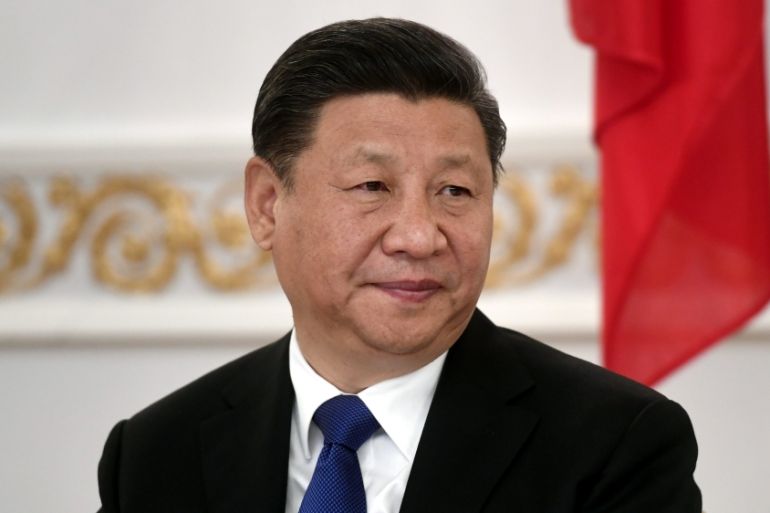Trump-Xi summit: A view from China
President Xi Jinping heads to Washington to meet Donald Trump, a leader who bashed China throughout his campaign.

On Wednesday, while filming on the Great Wall of China at Badaling, near Beijing, I met Stephanie Drew.
A surgeon, on holiday from the US, she overheard me delivering lines to camera for my report previewing the meeting of Chine President Xi Jinping and his US counterpart, Donald Trump.
Keep reading
list of 4 itemsBiden and Xi hold first discussions since November, talk Taiwan and tech
‘Obstetric winter’: Why are China’s hospitals shutting delivery wards?
What is Article 23, Hong Kong’s new draconian national security law?
We got talking. As a New Yorker in China, what did she make of the current US-Chinese relationship?
“I’m a big supporter of President Trump,” she told me, “and I’m very proud to know that he’s taking the time to meet with the people of China”.
As for where US-Sino relations are going:
“I think money makes the world go round, and if he [Trump] can make a path to make everybody successful then it will make us all happy again.”
“Money makes the world go round.” No doubt Trump would agree.
But money also goes around the world. And Trump’s beef with Xi is the direction most of it goes – more from the US to China than the other way around.
‘Better’ trading relationship
The view from China is that, for Trump, everything comes back to money. Trump has made no secret of his desire for a “better” trading relationship with China.
But in Beijing, that causes confusion.
“No one is forcing Americans to buy from us”, I’ve been told more than once, “they choose to”.
|
|
As consumers, Americans get cheaper products than they would if they bought items made at home. Tariffs – Trump has threatened import taxes of up to 45 percent – would hit American consumers as much as Chinese producers.
A trade war would hurt both countries’ economies. Few I’ve spoken to in Beijing, though, really think Trump wants one. They think Trump is smarter than he seems.
He knows that the trade surplus China runs with the US is exaggerated by the way the US measures such things: it includes the total value of all finished products imported from China, even though many of their component parts are actually from other countries – or even US exports coming back.
He knows, too – they say – that accusations China is a currency manipulator, intervening to keep the Renminbi low and its exports cheap are – at best – out of date. If anything, China’s government is working to prop up its currency, not push it down.
INFOGRAPHIC: China and US – Face-to-face
All that talk – people say – is rhetoric. It’s bluff.
What people in Beijing think is that Trump – the dealmaker – is using a “trade war” as the threat to get action from China in other areas.
“Do more to rein in North Korea or your economy will suffer”; “stop militarising the South China Sea or risk a big tax on your cars”; “Don’t want ‘One China’ questioned? Then stop selling us cut-price steel.”
But the Americans, Chinese academics think, are asking too much, too fast. They think Chinese negotiators would prefer a slower approach.
I asked Jia Qing Guo of Peking University what China wanted from the talks in Washington:
“I think, first, to set the tone of the relationship,” he told me. “We want to have a good start. We want to have the leaders of the two countries meet, get to know each other and get on friendly terms. Second, we want to decide between the two how to conduct dialogues and consultation between the two governments.”
So, Jia says, the priority for China is to slow the pace.
On North Korea, it’s often said the Chinese preference is for “strategic patience”. They may think the same approach suits Trump too.
Since Richard Nixon visited in 1972, every US president except Jimmy Carter has come to Beijing. All of them – except Gerard Ford – had their picture taken on China’s Great Wall. A photo there has become a sign that relations are good, and getting better.
Clearly that’s not the situation now. But Trump will hope that can change.
He’d probably like to visit. After all, he does like walls.